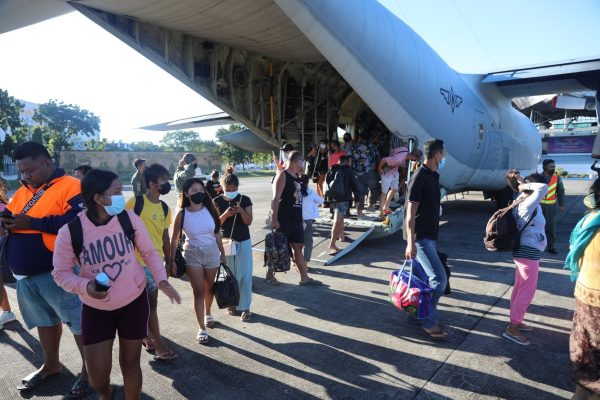Defence diplomacy, broadly understood as military-to-military interactions, activities and policies to build and maintain national security, would be a useful tool for states to advance their foreign policy goals in the ongoing climate crisis.
One useful aspect of defence diplomacy is that it need not only be between countries with close relationships. As it can build confidence between states, it can also involve cooperation, or at least the execution of military-to-military cooperative activities between rival countries. Climate change presents opportunities for mutually beneficial cooperation, such as providing HADR in a world facing increasingly extreme weather events. Rival countries could participate in HADR exercises at least multilaterally, if not bilaterally. After all, climate change affects everyone, and excluding rival countries in climate cooperation limits any real response.
In Southeast Asia — already one of the world’s most disaster-prone regions — climate change is set to increase the intensity and frequency of extreme weather events. As the region’s primary responders to disasters, militaries will need to scale up their capabilities through regional defence cooperation and defence diplomacy.
The Changi Regional HADR Coordination Centre in Singapore is one such example of regional defence diplomacy. The centre shares information on disasters in the region, facilitates military-to-military coordination and deployment and holds exercises. By hosting military officers from around the world, it also creates a network of international liaison officers. While the centre may not work specifically in climate security, its role as a regional centre facilitates engagement between militaries. After all, sustained and substantive military-to-military interactions allows states to improve their understanding of each other’s strategies and, importantly, establish lines of communication.
As the region’s key platforms for multilateral defence cooperation, the ASEAN Defence Ministers’ Meeting and Defence Ministers’ Meeting-Plus are well placed to address military responses to the climate crisis. Broadening their mandates to include climate security, either as a separate expert working group or part of the Experts’ Working Group on HADR, will allow militaries to coordinate and expand their base of mutual knowledge on climate-related disasters. As the probability of another climate-induced mega-disaster such as Typhoon Haiyan or Cyclone Nargis looms ever-closer, regional militaries should jointly develop a framework for climate-induced disaster responses before the next disaster hits.
Yet there are limits to defence diplomacy. The main focus of the military has always been its traditional war-fighting capabilities, with non-traditional security affairs a firm second. For example, the Ukraine crisis has brought the spectre of war to Europe — the ‘moral centre’ and significant funder of climate change policies. When states are on a war footing, the focus on climate change risks being placed on the back burner. Greater resources are already being pledged to bolster traditional military capacities — which are notoriously energy-intensive and high emission-producing — and diverting already limited focus and resources from climate security.
The results of defence diplomacy are also dependent on the overall political relationship between the states involved. For example, though the United States and China have previously participated in military-to-military exchanges and cooperated militarily to address non-traditional security threats, the recent chill in wider political relations has limited broad cooperation between two of the world’s biggest emitters. Defence diplomacy can provide an opportunity for states to pursue greater cooperation on climate policies while building confidence, but it is only one part of a broader climate strategy.
The world needs to take greater action to combat climate change as an existential crisis for humanity. At the same time, as temperatures continue to warm and climate-induced disasters intensify, militaries have a key role to play in the response to climate change, particularly where they are the main responders to disasters. Despite the limits to its effectiveness, defence diplomacy is still a useful tool in enhancing interoperability, building confidence and strengthening relationships with other states in the region — all vital in the ongoing climate crisis.
S Nanthini is a Senior Analyst in the Centre for Non-Traditional Security Studies at the S Rajaratnam School of International Studies, Nanyang Technological University, Singapore.

